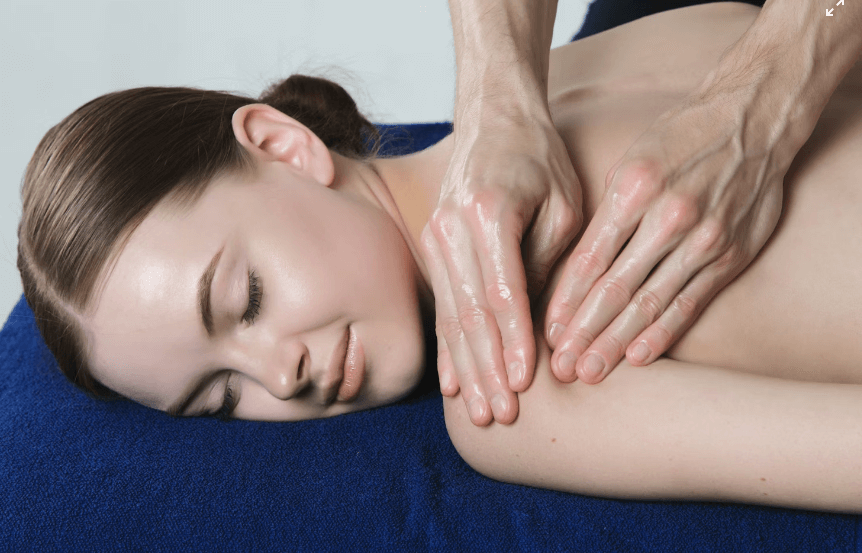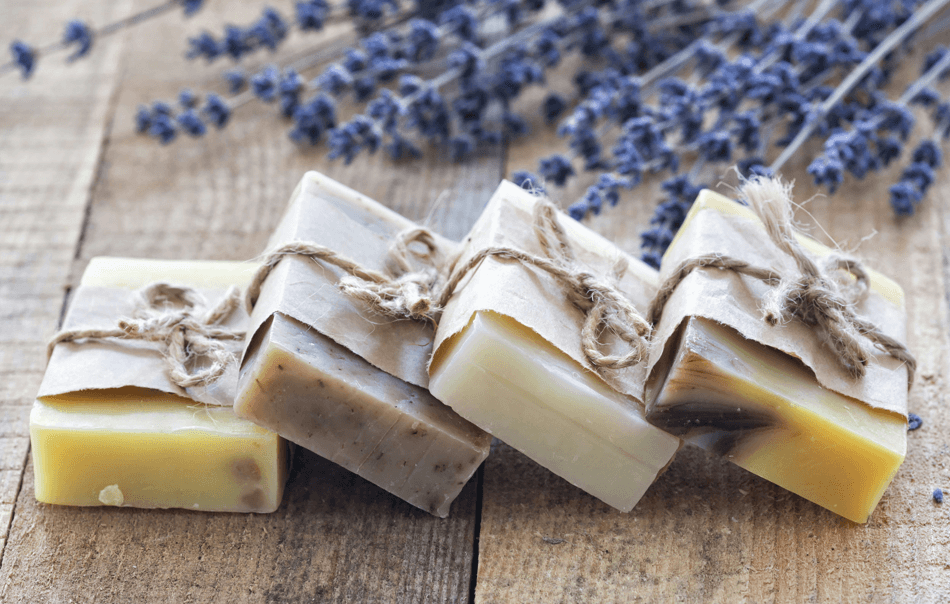Is Hyaluronic Acid Good for Rosacea? A Deep Dive Into The Facts

Rosacea is a common skin condition that affects millions of people worldwide. Characterized by redness, inflammation, and sometimes acne-like bumps, it can be a source of discomfort and self-consciousness for those who have it.
In the quest for effective treatments, one ingredient has been making waves in the skincare community: hyaluronic acid. But is hyaluronic acid good for rosacea? Let's delve into the science and practical applications to find out.
Key Takeaways:
- Hyaluronic acid can help maintain hydration in rosacea-prone skin, potentially reducing inflammation and improving skin barrier function.
- It is generally considered safe for sensitive skin and may soothe rosacea symptoms when used in appropriate formulations.
- Understanding the molecular weight and formulation of hyaluronic acid products is crucial for their effectiveness in managing rosacea.
Understanding Rosacea and Its Impact on Skin Health
Rosacea is an inflammatory skin condition that leads to red and irritated skin, primarily affecting the face. It can cause a range of symptoms, from redness and visible blood vessels to inflammatory papules and pustules, resembling acne.
The exact cause of rosacea is not fully understood, but it's known to involve the immune system, nervous system, and vascular system, and can be triggered by factors like spicy foods, alcohol, and stress.
The Role of Hyaluronic Acid in Skincare
Hyaluronic acid is a naturally occurring substance in the body, known for its capacity to retain moisture. In skincare, it's lauded for its ability to hydrate the skin, which is crucial for maintaining a healthy skin barrier function. This is particularly important for those with rosacea, as a compromised skin barrier can exacerbate the condition.
Hyaluronic Acid and Rosacea: A Synergistic Approach
When it comes to rosacea, maintaining skin hydration is key. Hyaluronic acid can play a significant role in this by helping the skin retain moisture and reinforcing the skin's moisture barrier. This can lead to less irritation and may help calm rosacea flare-ups. However, it's important to choose hyaluronic acid products that are specifically formulated for sensitive or rosacea-prone skin to avoid further irritation.
The Science Behind Hyaluronic Acid's Benefits for Rosacea
Hyaluronic acid's anti-inflammatory properties can be beneficial for rosacea sufferers. By helping to soothe inflammation and keep the skin hydrated, it can reduce the severity of rosacea symptoms.
Additionally, hyaluronic acid can aid in collagen production, which may improve skin tone and reduce the appearance of fine lines and wrinkles, often accompanying rosacea.
Choosing the Right Hyaluronic Acid Products for Rosacea Skin
Not all hyaluronic acid products are created equal, especially for those with rosacea. It's essential to look for products that are free from irritants like alcohol, fragrances, and beta hydroxy acids, which can make rosacea worse.
Products with a lower molecular weight of hyaluronic acid are also preferable, as they can penetrate the skin more effectively without causing irritation.
Incorporating Hyaluronic Acid into Your Rosacea Skincare Routine
To maximize the benefits of hyaluronic acid for rosacea, it should be applied to damp skin to help it retain moisture. It can be used in conjunction with other rosacea-friendly ingredients like azelaic acid to reduce inflammation and calm redness.
A gentle approach is key; applying hyaluronic acid serums or moisturizers should be done with care to avoid aggravating the skin.
The Role of Skin's Moisture Barrier in Managing Rosacea
Hyaluronic acid is renowned for its ability to fortify the skin's moisture barrier, which is crucial for individuals with rosacea prone skin. A compromised barrier often leads to increased sensitivity and susceptibility to irritants that can exacerbate rosacea symptoms.
By enhancing the skin's natural defenses, hyaluronic acid helps to maintain hydration levels, ensuring that skin cells are less likely to react adversely to environmental stressors. This hydration is not merely superficial; it penetrates deep into the dermal layers, providing lasting moisture and resilience against triggers.
The use of skincare products containing sodium hyaluronate, a form of hyaluronic acid, can be particularly beneficial for those with dry skin and rosacea. Sodium hyaluronate has a lower molecular weight, allowing it to absorb more easily and effectively into the skin, delivering intense hydration and soothing properties.
This can help to calm rosacea flare-ups and reduce redness, making the skin feel more comfortable and appear less inflamed.
The use of products that combine hyaluronic acid with other barrier-strengthening ingredients, such as ceramides and fatty acids, can further enhance the skin's resilience. These combinations work synergistically to replenish lipids, reduce transepidermal water loss, and improve the overall texture and appearance of the skin.
A well-maintained moisture barrier can significantly reduce the frequency and intensity of rosacea flare-ups, leading to a more comfortable and confident complexion.
The Interplay Between Diet and Rosacea: Can Certain Foods Affect Your Skin?
It's not uncommon for individuals with rosacea to notice that certain foods, such as spicy food, can trigger or exacerbate their symptoms.
The connection between diet and skin health is complex, and while not all triggers are universal, it's important to recognize that what you eat may have an impact on rosacea flare-ups. Identifying and avoiding personal dietary triggers can be a key strategy in managing the condition.
While some foods are off limits due to their potential to aggravate rosacea, others might offer benefits. Foods rich in anti-inflammatory properties can help calm rosacea flare-ups and support the skin's moisture barrier.
Omega-3 fatty acids, found in fish and flaxseeds, and antioxidants present in fruits and vegetables, are examples of nutrients that can contribute to a rosacea-friendly diet.
Personal observation and dietary adjustments can play a significant role in controlling rosacea symptoms alongside topical treatments like hyaluronic acid.

Enhancing Skin Resilience Against Rosacea with Anti-Inflammatory Ingredients
The incorporation of anti-inflammatory properties in skincare products is pivotal for individuals whose rosacea tend to flare up with environmental triggers or stress.
Ingredients such as niacinamide, green tea extract, and aloe vera complement hyaluronic acid's hydrating prowess by soothing the skin and reducing redness and inflammation. These components work in harmony to fortify the skin's moisture barrier, which is essential in protecting against irritants that can exacerbate rosacea symptoms.
The strategic use of these anti-inflammatory agents can help calm rosacea flare-ups by interrupting the inflammatory cascade that leads to the characteristic redness and swelling of the condition.
By selecting products that combine hyaluronic acid with these calming ingredients, individuals can create a more targeted skincare regimen that not only hydrates but also actively reduces the discomfort and appearance of rosacea.
Age-Defying Strategies for Rosacea Sufferers: The Role of Anti-Aging Products
Incorporating anti-aging products into a skincare routine for rosacea can be a delicate balance. These products often contain active ingredients that aim to rejuvenate the skin, but they must also respect the sensitive nature of rosacea-affected areas.
Anti-aging products with anti-inflammatory properties can be particularly beneficial, as they address the signs of aging while simultaneously soothing inflammation.
Ingredients like niacinamide and peptides are known for their gentle yet effective anti-aging benefits and can help improve skin texture and reduce the appearance of fine lines without exacerbating rosacea symptoms.
Moreover, the integration of anti-aging products that focus on strengthening the skin's moisture barrier can provide dual benefits for rosacea sufferers. By improving the skin's ability to retain moisture, these products not only slow down the aging process but also aid in maintaining a calm and hydrated complexion.
It is essential for individuals with rosacea to select anti-aging products that are specifically formulated to be non-irritating and to support the skin's natural defense mechanisms, ensuring that the pursuit of youthful skin does not come at the cost of rosacea management.
The Synergy of Anti-Inflammatory and Anti-Aging Products in Rosacea Management
Anti-aging products often contain ingredients that can help to soothe and repair the skin, which is beneficial for those with rosacea.
Ingredients like niacinamide, peptides, and antioxidants not only combat the signs of aging but also offer anti-inflammatory benefits that can help manage rosacea symptoms. These ingredients work together to strengthen the skin's moisture barrier, improve texture, and reduce the appearance of fine lines and wrinkles without irritating sensitive rosacea-prone skin.
Moreover, the regular use of anti-aging products with anti-inflammatory properties can lead to long-term improvements in skin health for individuals with rosacea. By choosing products that address both concerns, users can streamline their skincare routines while maximizing the benefits.
It's important to select anti-aging products carefully, ensuring they are free from irritants and suitable for sensitive skin types. With the right products, those with rosacea can enjoy youthful, resilient skin while keeping flare-ups and inflammation at bay.
The Evolution of Anti-Aging Products for Rosacea-Prone Skin
As the skincare industry advances, the development of anti-aging products that cater to sensitive and rosacea-prone skin types has become a priority. These products aim to address common aging concerns, such as fine lines and loss of elasticity, without triggering rosacea symptoms. The key is to find formulations that include gentle, non-irritating ingredients with both anti-aging and anti-inflammatory properties, ensuring that the skin's moisture barrier remains intact and resilient.

Innovative products now combine hyaluronic acid with other skin-friendly compounds like peptides and ceramides, which support the skin's structure and function. These ingredients not only help to calm rosacea flare-ups but also contribute to a smoother, more youthful complexion. By carefully selecting anti-aging products designed for reactive skin, individuals with rosacea can enjoy the benefits of age-defying skincare without fear of aggravating their condition.
Potential Side Effects and Considerations
While hyaluronic acid is generally well-tolerated, even by those with sensitive skin, it's important to be aware of potential side effects. Overuse or using products with a high molecular weight may lead to skin feeling overly hydrated or puffy. Always patch test new products and introduce them gradually into your skincare routine.
Expert Opinions on Hyaluronic Acid and Rosacea
Dermatologists often recommend hyaluronic acid for patients with rosacea due to its hydrating and anti-inflammatory properties. However, they also stress the importance of individualized treatment plans, as what works for one person may not work for another. Consulting with a healthcare professional before starting any new treatment is always advised.
Real-Life Success Stories: Hyaluronic Acid for Rosacea
Many individuals with rosacea have found relief by incorporating hyaluronic acid into their skincare routines. Case studies show that consistent use can lead to a noticeable reduction in redness and inflammation, as well as an overall improvement in skin texture and hydration levels.
The Future of Hyaluronic Acid in Rosacea Treatment
Research into the benefits of hyaluronic acid for rosacea is ongoing. As our understanding of the condition and its interaction with various skincare ingredients deepens, the potential for hyaluronic acid to become a staple in rosacea treatment grows. New formulations and combinations with other beneficial ingredients are continually being developed.
How to Shop for Hyaluronic Acid Products
When shopping for hyaluronic acid products, look for those that are specifically formulated for sensitive or rosacea-prone skin. Check the ingredient list for natural ingredients and avoid those with known irritants. Products that combine hyaluronic acid with other beneficial ingredients like ceramides or niacinamide can offer additional benefits.
The Importance of a Holistic Approach to Rosacea
While hyaluronic acid can be a valuable component of a rosacea treatment plan, it's important to take a holistic approach to the condition. This includes managing triggers, following a gentle skincare routine, and considering lifestyle factors such as diet and stress management.
Summary
Hyaluronic acid has emerged as a promising ingredient for those with rosacea, offering hydration, anti-inflammatory benefits, and support for the skin barrier function.
While it is generally safe and beneficial for rosacea-prone skin, choosing the right products and using them correctly is crucial. As with any skincare ingredient, individual experiences may vary, and it's important to consult with a dermatologist to tailor a treatment plan to your specific needs.
Frequently Asked Questions
Q: Can hyaluronic acid cure rosacea?
No, hyaluronic acid cannot cure rosacea, as there is currently no cure for the condition. However, it can help manage symptoms by keeping the skin hydrated and reducing inflammation.
Q: How often should I use hyaluronic acid if I have rosacea?
The frequency of use should be determined by your skin's tolerance and the advice of a dermatologist. Generally, it can be used once or twice daily, but it's important to listen to your skin and adjust as needed.
Q: Are there any skincare ingredients that should be avoided when using hyaluronic acid for rosacea?
Yes, ingredients such as alcohol, fragrances, and beta hydroxy acids can irritate rosacea-prone skin and should be avoided. It's best to use hyaluronic acid products that are free from these irritants and are specifically formulated for sensitive skin.
Q: What's better for skin, Hyaluronic Acid or Niacinamide?
While hyaluronic acid is great at skin hydration, niacinamide is a versatile multitasker. The good news is that you don't have to choose one over the other. These ingredients can be used in tandem to address a variety of skin concerns. For instance, applying hyaluronic acid can quench thirsty skin, followed by niacinamide to soothe and fortify. This combination can be particularly effective for those looking to tackle dryness, aging, and sensitivity simultaneously.
Q: Can I Use Vitamin C and Hyaluronic Acid Together?
When used together, vitamin C and hyaluronic acid can create a synergistic effect that maximizes skin health. The key is to apply vitamin C first, as its low pH level allows it to penetrate the skin effectively. Following up with hyaluronic acid can then help to lock in moisture and aid in the absorption of vitamin C.





